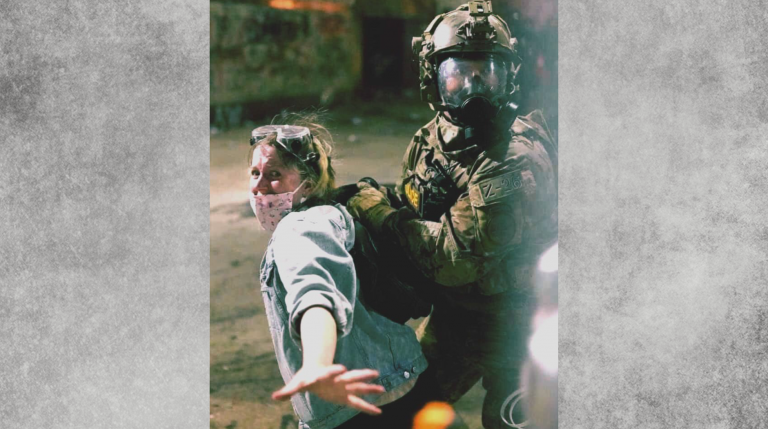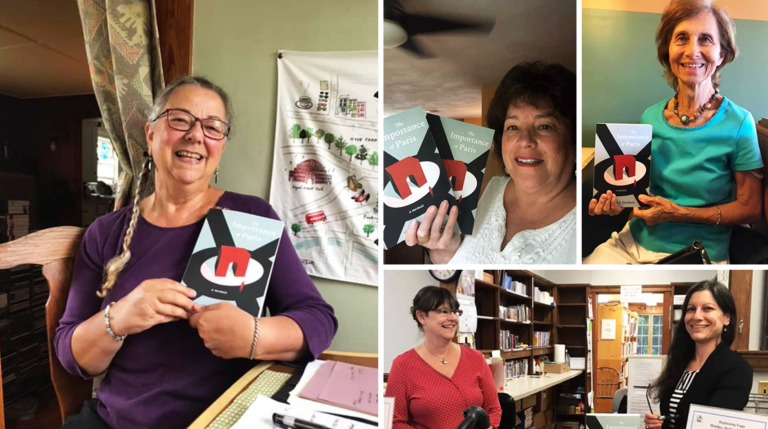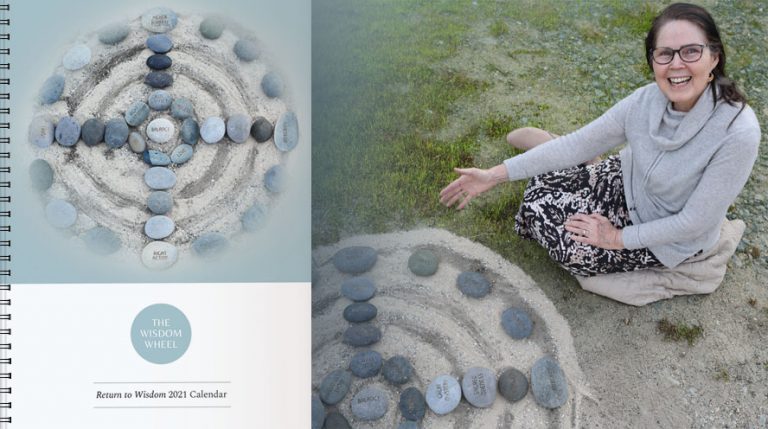What makes for a good story? A beginning, middle and end, for starters, but don’t forget the importance of closing the loop via a supportive audience of readers and listeners. Stories must be shared. Getting out from behind these screens regularly, I enjoy storytelling done the old fashioned way, up close and in person. In the absence of a community campfire to gather round, how do you get the life affirming medicine of good stories, especially during our trying times? These ways work to keep me going.
Oral Storytelling
I went to Tell Newport at the Firehouse theatre recently. The theme that night was “The Last Straw.” Five people, mostly women, each had ten minutes to tell a true story, without notes or props. Taking the stage and speaking truths to strangers is heroic and their courage was infectious — better than sitting on the couch in front of a TV. One story, about combatting suicidal depression, after the theft of the popular election vote victory in the 2016 presidential race, stays with me: “…I pinned a ‘Free Hugs’ note to the back of my jacket and went out to offer what I could to other people who were also hurting.” Because of this illegitimate presidency, this storyteller has also lost access to healthcare during their transgender journey.
The Wisdom Wheel
Sharing the television spot about the Wisdom Wheel last month has connected me with old friends and the newly intrigued. How refreshing to rediscover “beginner’s mind” on this subject after discussing it for over twenty years. Some opportunities are in the works and if your organization needs a different kind of speaker or something out of the box to catalyze great discussions, contact me. I am always willing to hit the road for good causes and an honorarium.
Ceremonies
Our next Community Lodge is Feb. 16th at 10 a.m. Anyone wanting additional information about this or the annual four day Bear Fast coming up next month should contact me soon. No charge for ceremonies though we accept donations. These are the antidotes to commercialism and corruption.
The Memoir and Other Writing
Writing Groups
Books don’t get written in a vacuum and most of my Saturday mornings are spent with my writing group, hearing their written stories read aloud and sharing my own. The feedback of these friends and beta readers is priceless. Our latest prompt included “A Brush With Greatness” and I used a memoir excerpt.
Book Clubs
Being a regular reader is also important. Without savoring the tales told in great books, how would any of us recognize wonderful writing? Escaping into the magical realms enclosed between the pages has kept me sane. Two decades of faithful book club membership have become a most profitable investment. To understand not only what the well-proven mechanics are but what readers want. Ethos, Pathos, and Logos have been satisfying us since the days of Aristotle.
Please enjoy a short excerpt from my memoir below (for the “Brush With Greatness” prompt), and stay tuned for the book’s release this year.
Until next time,
Cynthia F. Davidson
An invitation came in the mail to a reception held by the mayor of Paris, Jacques Chirac’s Hotel de Ville (City Hall). The occasion was the translation into French of a book of poetry written by Prince Abdullah al Faisal Al Saud. How my name had gotten onto the invitation list was a mystery. Perhaps Waddah? Or my old Mobil Oil boss who knew I wrote poetry? I decided to attend and responded to the RSVP.
The overly ornate interior of the Hotel de Ville (City Hall) was full of elegantly dressed people when I arrived on the appointed evening. The honor guard was going up the steps and we paused to allow the soldiers time to go through the flourishes, drawing their sabers. The trappings of empire, I thought while following them up the carpeted steps. Inside the large reception room huge chandeliers hung from the ceiling where frescoes of naked women and cupids frolicked in eighteenth century style. These would never be seen in the City Halls of Riyadh or Jeddah I noted dryly while passing beneath them.
Jacques Chirac, the mayor of Paris, seemed harried and sweaty when I shook his hand in the receiving line. That evening his introductory speech droned on and on about the long friendship between France and the Kingdom of Saudi Arabia. I was thinking of the details he was leaving out. Who would tell the truth if I didn’t write it? Ruefully I recalled the real story Mazen had told me years ago about his father, Dr. Rashad Pharaon, being the first Saudi ambassador in Paris. Although the medical doctor had been born in Syria, King Abdul Aziz Al Saud had sent Rashad Pharaon to represent Saudi Arabia after the Second World War because he trusted him. By then Mazen’s father was the king’s personal physician, and he had treated many members of the royal family, curing them of syphilis too, if those rumors were correct.
Dr. Pharaon’s diplomatic credentials had been rejected at first by the French government because his name was still on their most wanted list. He had joined the resistance movement during the French occupation of the Levant (Syria and Lebanon) and part of an ambush that killed a French officer. A wanted man, Dr. Pharaon had fled south into the desert, ending up in Riyadh, where his medical talents were much appreciated. His medical degree had been earned in France, and he spoke the language and understood the thinking of the colonialists.
The Saudi king held fast and forced the French to accept the former resistance fighter as Ambassador Pharaon. Mazen was born in Paris during his father’s posting. His mother was already in labor on the way to the hospital and he arrived in the car on a bridge over the River Seine. He’d never known which of the city’s thirty-seven bridges it had been.
Now the featured poet took the podium, graciously thanking the mayor for his remarks. This Saudi Prince Abdullah was a grandson of that first Saudi King Abdul Aziz, and a brother of the current Saudi Minister of Foreign Affairs, Prince Saud. These brothers were both sons of the assassinated King Faisal, whose reign I’d lived under in Saudi Arabia. Prince Abdullah spoke exclusively in Arabic, with an interpreter. Reciting his poetry and making his remarks, he often stroked his nearly white goatee. Such a familiar gesture, I’d seen so many Muslim men touch their beards this way, while swearing Wahayat Allah, by the beard of the Prophet.



